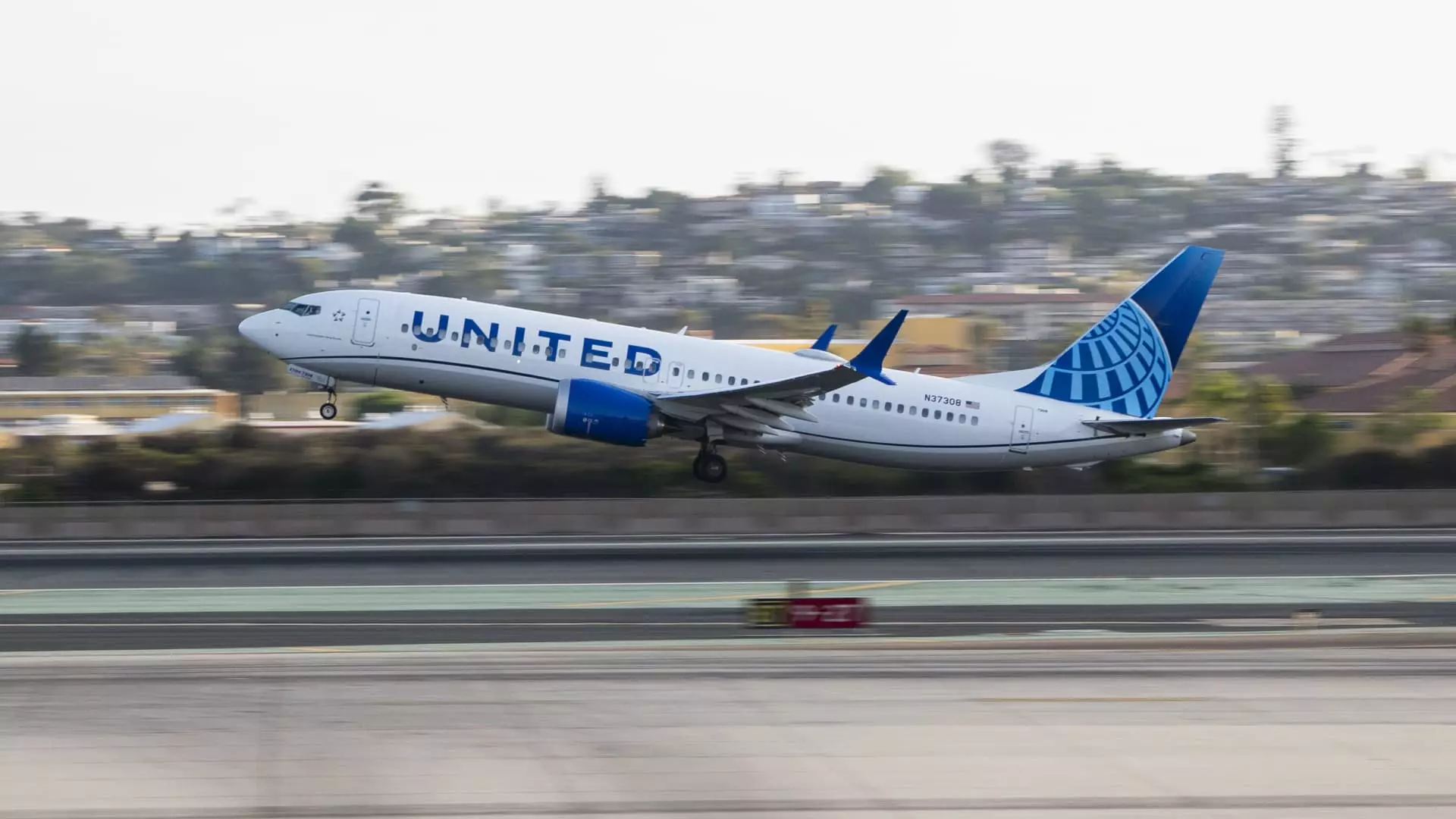United Airlines made waves recently by announcing a significant $1.5 billion share buyback program, coinciding with the release of its third-quarter financial performance, which exceeded Wall Street’s expectations. As the airline industry continues to rebound from the crippling effects of the COVID-19 pandemic, United’s recent earnings report showcases the carrier’s resilience and adaptability in a challenging market. For the third quarter, United Airlines reported adjusted earnings per share (EPS) of $3.33, surpassing the anticipated $3.17. Additionally, total revenue reached a notable $14.84 billion, indicating a 2.5% increase from the same period a year prior.
This promising financial outcome is particularly striking when considered against the backdrop of lingering pandemic-related challenges. As a point of reference, the airline’s net income of $965 million, although a 15% decline year over year, reflects a cautious recovery rather than a full return to pre-pandemic profit levels. The airline sector received immense government support during the peak of the pandemic, but this new buyback signals a pivotal shift toward self-sufficiency and shareholder value creation, an essential aspect of corporate strategy moving forward.
Strategic Approach to Shareholder Value
United’s decision to initiate this $1.5 billion share buyback marks its first such move since the onset of the pandemic. During the height of COVID-19, share repurchases and dividend payments were largely suspended as airlines struggled to maintain slim margins. In response to these ongoing financial pressures, United’s CEO Scott Kirby emphasized that investing in both people and the business remains the airline’s top priority, even as it undertakes this share repurchase program. This management approach is indicative of a balanced strategy, positioning the airline to respond proactively to market dynamics while simultaneously rewarding shareholders.
It is noteworthy that United is not alone in its decision to reinstate share buybacks; Southwest Airlines introduced a $2.5 billion share repurchase initiative just the previous month. This trend underscores a broader shift in the airline industry, as carriers transition from survival mode to aggressive growth and investment strategies.
As United Airlines gears up for the final quarter of 2023, the company anticipates adjusted earnings per share to be between $2.50 and $3.00, signaling a robust year-over-year comparison to last year’s $2.00 EPS. United’s ability to maintain positive domestic unit revenue, particularly in the months of August and September, suggests that strategic capacity management—implemented by trimming excess flights and focusing on pricing—has been effective.
United’s commitment to expanding its capacity by 4.1% in Q3 further emphasizes its focus on meeting the demand for air travel. Notably, corporate revenue surged by 13%, indicating a strong recovery in business travel, while the airline’s premium offerings, including business class tickets, experienced growth of 5%. The airline’s versatile revenue streams are bolstered by a notable 20% increase in sales from its basic economy tickets, revealing that there is demand across different market segments.
Moreover, United’s ambitious expansion plans for next year entail introducing new international routes to diverse destinations such as Mongolia, Senegal, Spain, and Greenland, reflecting a strategic pursuit of growing international travel demand. This diverse approach to expansion not only broadens United’s market reach but also positions the airline to capitalize on pent-up travel aspirations.
Despite these promising developments, United Airlines will undoubtedly face scrutiny in the upcoming earnings call, particularly regarding demand trends and potential supply chain complications stemming from production delays at Boeing. With most of Boeing’s factories idled amid machinist strikes, United must navigate these challenges effectively to maintain its competitive edge.
United Airlines’ recent announcements and financial results underscore a pivotal moment for the airline as it transforms from pandemic recovery to growth and profitability. With a fresh strategy that embraces both shareholder engagement through a substantial buyback program and a forward-looking approach to global expansion, United is poised for an exciting year ahead. The airline’s resilience should serve as a blueprint for others in the industry, illustrating that a balance of strategic investments and shareholder value can coexist in a post-pandemic world.


Leave a Reply